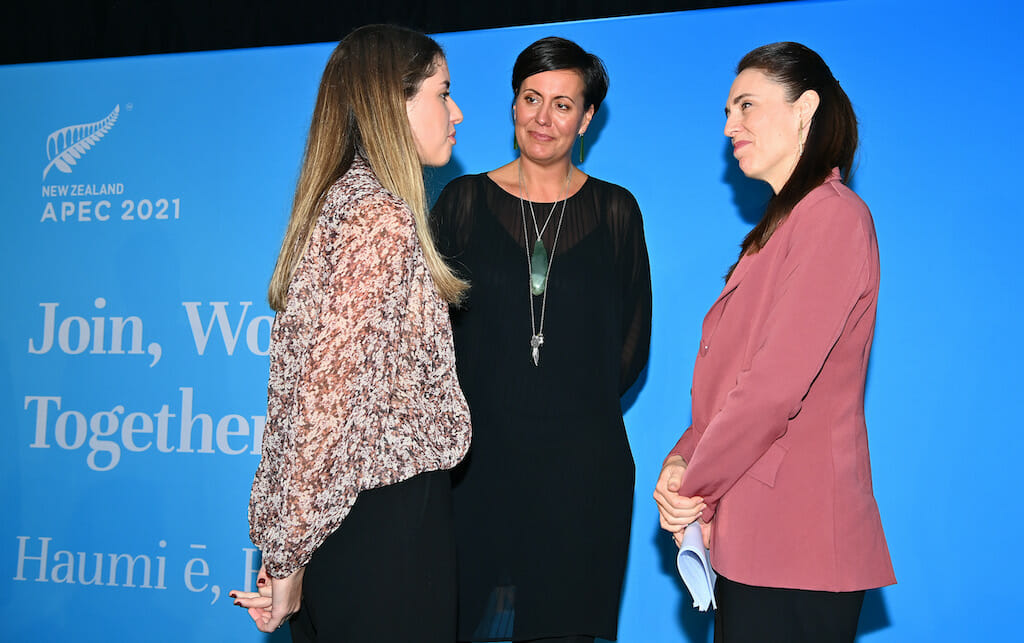APEC 2021: What is the APEC Business Advisory Council?
APEC (Asia Pacific Economic Cooperation) brings 21 member economies together once per year to tackle shared challenges and help each other prosper. Hosting is a once-in-20-year opportunity for New Zealand and there is no other event on the calendar with such potential to shape our region’s future.
The APEC Business Advisory Council (ABAC) is an independent group of business leaders that advises APEC leaders on priority issues for business in the region. Its primary function is to provide advice to APEC leaders each year on the implementation of APEC’s work programme from a business perspective, and it is made up of three private sector representatives from each APEC member economy. After the second ABAC meeting of 2021, we spoke with Rachel Taulelei, ABAC Chair, CEO Kono NZ and World Class New Zealander.
How does ABAC work with the public sector to clarify and agree on APEC 21’s driving priorities?
ABAC is in the business of influence. We develop thinking and ideas related to APEC’s priorities (and related to our own priorities) and we present them to APEC Ministers, Leaders and senior officials in the form of reports and letters. We use opportunities for direct dialogue to promote our recommendations. The most important direct dialogue is the one we have with APEC’s Leaders at the end of the year. We keep in close touch with work level officials who are preparing the decision-making for Leaders and Ministers. And individual ABAC Members liaise with their host governments to encourage attention to our work. So we work at all levels.
Why is it so important for the private sector to have the ability to consult with the public sector on intergovernmental forums such as this?
It is important that all APEC’s decisions are grounded in the reality of the real world and business. ABAC brings that perspective. Our job is to make sure that APEC’s decisions can work in practice. ABAC’s role is quite unique in that we have a direct line to those making the decisions. They’re not always able to take on all of our advice so then we recommend again. This is a long term game and we are very…..tenacious. But also patient.
Are businesses beneficiaries of APEC policies or do they play a key role in helping to bring them to life?
There is no doubt that business benefits from APEC policies which make doing business easier, cheaper and faster. But business also has a key role to play in ensuring APEC economies implement policies that benefit not just business but our communities as a whole. APEC’s traditional agenda is focused on trade – removing barriers in the form of tariff and non tariff barriers and putting in place better trade rules. Today APEC’s agenda goes far wider in ensuring the benefits of trade are shared, enabling women’s empowerment, addressing sustainability and now also promoting Indigenous economic development.

(Photo by Hannah Peters/Getty Images for NZTE)
What are the steps that are taken afterwards by ABAC representatives to action the outcomes of New Zealand’s host year?
There is continuity in APEC and ABAC so next year when we are no longer in the Chair we will still be part of ABAC’s governance structure and we will be watching to make sure that the things we recommended are being put into action. New Zealand has always played a leading role in ABAC even when we are not chairing – for example by assuming the role of chairing ABAC Working Groups we will be looking to hold various positions of influence as we move into Thailand’s year and beyond.
How might ABAC and ultimately APEC empower and enable indigenous populations to benefit from their member state’s involvement in these forums?
I believe there are four primary approaches.
- Implementation and resourcing of dedicated work streams to build the policy architecture needed to support the inclusion of Indigenous perspectives across APEC priority areas;
- Elevating the success stories of Indigenous businesses to shift perceptions of Indigenous business and economies as underdeveloped;
- Creating opportunities for Indigenous peoples to participate independently in the many activities these forums host at a senior leadership level to ensure that Indigenous perspectives are not diluted or filtered through officials-only channels;
- And fundamentally keeping it on the agenda as a standing item of importance.
What can New Zealand’s business ecosystem be doing better to support the enablement of Māori business?
This is a big question and one that could be an article in and of itself! But here are four points as a starter:
- Greater commitment to diversity and inclusion in business networks and forums so more Māori business leaders have exposure to the wider suite of opportunities available across the business community.
- Deepening its understanding of the structural and systemic barriers that impact the ability of Māori businesses to scale or grow.
- Building stronger relationships with Māori business leaders and Iwi Asset holding companies to better understand the rights and interests of Māori in a Treaty context and to strengthen cohesion across the business sector between Māori and non-Māori businesses.
- Ensure relevant capabilities and lived experiences are included in the governance of leading New Zealand businesses – it’s the diversity of thought and perspective of partnership that will benefit the nation.

(Photo by Hannah Peters/Getty Images for NZTE)
What does success look like for you in your role?
It looks like purposeful action and meaningful deliverables. Some of those will be immediate, and others will have medium to long term impact for our businesses in the APEC region. A degree of the work we do is slow moving and policy setting in nature – but that makes it no less relevant than the immediate results we can harvest. They all build towards a sustainable, dynamic, seamless, resilient and inclusive future for Aotearoa. And if we enjoy moving about the world in an open, transparent, rules based trading environment; which arguably is every exporter in New Zealand, then this work is deeply relevant.
For more information on APEC:
And follow: Twitter @APEC2021NZ Facebook @APEC2021NewZealand
Listen to Rachel Taulelei’s Radio New Zealand interview on ABAC here.
HOW KEA CAN HELP YOUR BUSINESS GROW
Kea Connect
Kea Connect is a free service that will help your business grow offshore. We connect you personally with regional, sector-specific experts and peers.
Resources
Kea is here to help New Zealand businesses grow offshore. Be inspired and hear advice from businesses who have created their export path.
Jobs Portal
Looking for the right talent for your team? Reach our global Kiwi community through the Kea international job portal.

 MENU
MENU






